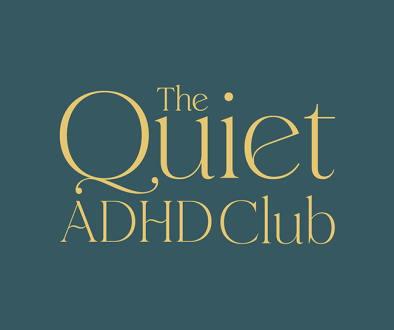Why ADHD couples struggle with intimacy and how to reconnect
One partner treasures their loved one’s energy – the quick wit, the spontaneity, the way they throw themselves into life. But during intimacy, that same energy sometimes feels far away. In the middle of sex, the partner notices their loved one’s focus drift. The body is present, but the mind has wandered. Sometimes it’s work stress, sometimes it’s fantasy. Both partners feel the distance, even though the love between them is strong.
ADHD is well known for affecting work and focus, but it also shapes how people experience love, sex and intimacy. Many couples find that ADHD brings both excitement and energy into a relationship, but also challenges that leave one or both partners feeling disconnected. Understanding these patterns is the first step to rebuilding intimacy.
Desire is high, but satisfaction feels low
It can be difficult not to take it personally if a partner feels distant during sex, especially if they were engaged in the early days of the relationship. You may find yourself asking if they still find you attractive or your relationship as exciting. However, this is a common ADHD trait. ADHDers often report higher sexual desire, more frequent masturbation and lower sexual satisfaction.
This can create a mismatch that can create frustration for both partners. In couples therapy, we highlight the difference between wanting sex and feeling fulfilled by it. This is not only common with ADHDers but neurodivergent people in general, particularly because sensory issues can come into play.
The distracted mind in the bedroom
When it comes to ADHD, it’s not that the ND is bored of their partner, but repetitive and predictable sexual scripts can cause the ADHD brain to drift elsewhere. However, that is not to dismiss how hurtful that can feel for the partner, who is left wondering where they have gone and why they can’t be present in the moment.
The distractions that creep in could be worries about work or responsibilities, which is a mood killer to say the least, or it could drift into sexual fantasies and daydreams, which creates a sense of distance. The partner may interpret this as absence or a lack of care. While this is understandable, it’s not about love – it’s just how attention patterns play out with ADHD.
Staying present: reconnecting mind and body
A key to being in the moment is the mind-body connection. Grounding techniques are useful for myriad aspects of mental health and interpersonal issues and intimacy is no exception. The mind-body connection helps to bring focus back to the moment and each other.
Techniques for this include:
- Mindful breathing and sensory grounding
- Slowing down arousal and varying tempo
- Exploring new, playful experiences together
This is about presence over performance. These exercises also veer into somatic therapy territory which we’ve also covered on the blog.
How a parent-child dynamic can squash desire
Because of the executive function difficulties that are present in ADHD and AS, ND-NT couples can slip into parent/child roles and a caretaker dynamic. When this happens, it can impact the sexual desire in the relationship. It’s hard to feel attracted to someone when the balance tips into supervision, reminders, or management.
This is not about blame, but about recognising how these dynamics develop. When one partner constantly picks up the slack, they may feel more like a parent than an equal, which is anti-erotic by nature. The ADHD partner, meanwhile, may feel criticised or disempowered. In therapy and couple coaching, the goal is to re-establish partnership and equality so that intimacy has space to grow again.
Balancing scheduling with spontaneity
Time can be another challenge. ADHD and time management difficulties often mean intimacy gets pushed down the priority list. After a long day, the chance to connect physically may have already slipped away. At the same time, strictly scheduling sex can feel clinical and forced, leaving both partners unsatisfied.
What works best for many couples is a light structure. This could be agreeing on windows of opportunity but keeping things flexible. That way, there’s room for spontaneity and playfulness, without the disappointment of missed chances. Building novelty and fun into intimacy helps sustain desire without it becoming another chore to tick off.
Practical ways to build connection
ADHD does not mean intimacy is doomed or that there’s an expiry date for good sex in your relationship. With understanding and support, couples can strengthen their connection. Along with supportive couples therapy and coaching, you can help your sexual life by:
- Viewing ADHD as a difference, not a defect
- Experimenting with new ways of being present and playful
- Prioritising equality and teamwork in daily life so attraction can flourish
- Using therapy, coaching, or self-reflection to uncover patterns that hold intimacy back
When couples learn to approach intimacy with openness, compassion and creativity, it becomes much easier to move past frustration. Instead of focusing on what isn’t working, you can begin to rediscover closeness that feels both satisfying and sustainable.



